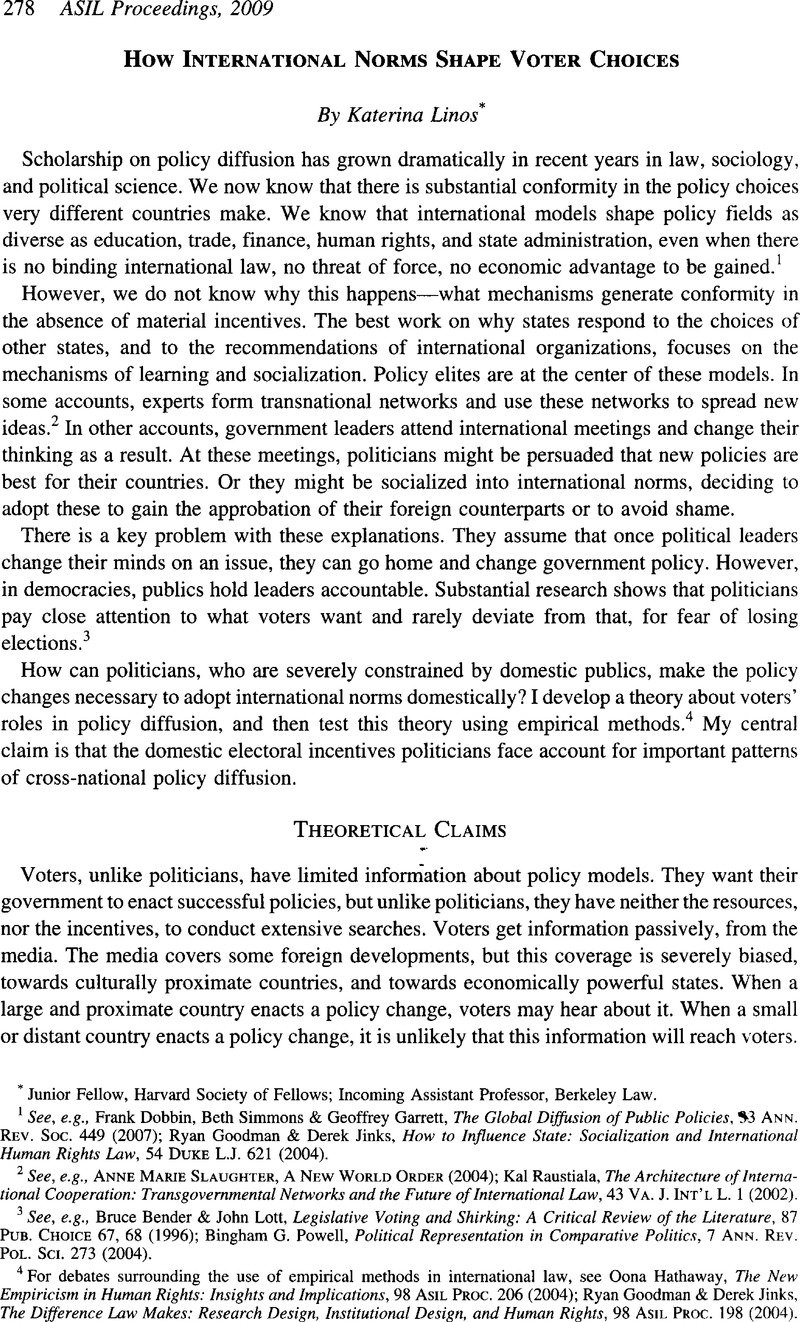No CrossRef data available.
Published online by Cambridge University Press: 28 February 2017

1 See, e.g., Dobbin, Frank, Simmons, Beth & Garrett, Geoffrey, The Global Diffusion of Public Policies, 33, Ann. Rev. Soc. 449 (2007)CrossRefGoogle Scholar; Goodman, Ryan & Jinks, Derek, How to Influence State: Socialization and International Human Rights Law, 54 Duke L. J. 621 (2004)Google Scholar.
2 See, e.g., Anne Marie Slaughter, A New World Order (2004); Raustiala, Kal, The Architecture of International Cooperation: Transgovernmental Networks and the Future of International Law, 43 Va. J. Int’l L. 1 (2002)Google Scholar.
3 See, e.g., Bender, Bruce & Lott, John, Legislative Voting and Shirking: A Critical Review of the Literature, 87 Pub. Choice 67, 68 (1996)CrossRefGoogle Scholar; Powell, Bingham G. Political Representation in Comparative Politics, 7 Ann. Rev. Pol. Sci. 273 (2004)CrossRefGoogle Scholar.
4 For debates surrounding the use of empirical methods in international law, see Hathaway, Oona, The New Empiricism in Human Rights: Insights and Implications, 98 ASIL Proc. 206 (2004)Google Scholar; Goodman, Ryan & Jinks, Derek, The Difference Law Makes: Research Design, Institutional Design, and Human Rights, 98 ASIL Proc. 198 (2004)Google Scholar.
5 For a more extensive discussion of E.U. social directives and their impact on E.U. member state countries, see Linos, Katerina, How Can International Organizations Shape National Welfare States? Evidence from Compliance with European Union Directives, 40 Comp. Pol. Stud. 547 (2007)CrossRefGoogle Scholar. See also Linos, Katerina, Path Dependence in Discrimination Law, 35 Yale J. Int’l L. 115 (2010)Google Scholar (discussing ECJ interpretations of E.U. Directives and Treaty provisions in the social policy field).